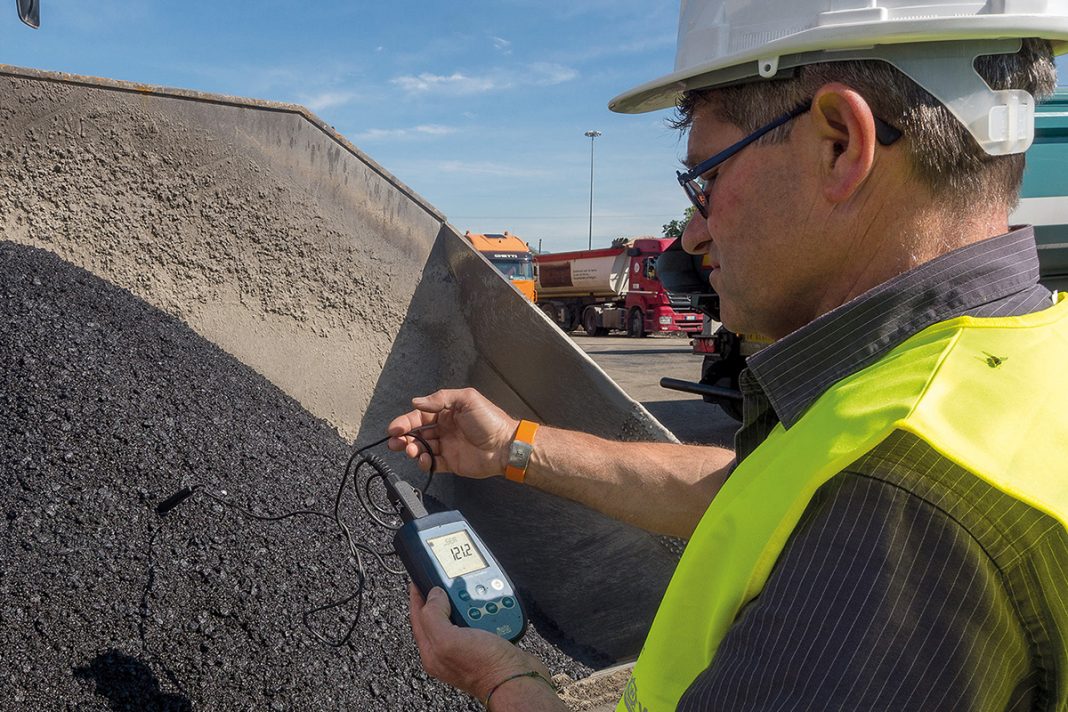![]()
The production of reduced-temperature asphalt, which is also known as low-temperature asphalt, warm asphalt or warm mix, is nothing new – the process was already tested back in the 1990s.
Today, when road construction authorities are also focusing on issues such as CO2 balance, protecting resources and reducing the energy input, everyone is talking about reduced-temperature asphalt.
Asphalt mixing plants from Benninghoven are in use all over the world and they are proof that high standards with regard to the quality of the mixture and economic efficiency along with climate and health and safety requirements can all be perfectly combined.
What is reduced-temperature asphalt?
Reduced-temperature asphalt is a mixture produced at a temperature between 110 °C and 130 °C. Hot asphalt, on the other hand, is typically produced between 140 and 180 °C – usually with bitumen at 160 °C as a binder. One advantage: The reduced-temperature mixtures can be conveniently produced and processed in the conventional manner.
Reducing the bitumen viscosity
The bitumen requires a temperature of at least around 140 °C to achieve good wetting and coating of the aggregates in the mixer. Below this temperature, it remains too viscous. To lower the temperature during asphalt production, the bitumen viscosity has to be reduced temporarily. This is achieved by adding water (foam bitumen) or additives. When the hot bitumen is mixed with water, the bitumen foams and the volume increases many times over. The increased surface area enables better wetting of the aggregates in the mixer. This means that the mineral is coated well even at a lower temperature.
High potential for saving energy and CO₂
According to the German Asphalt Association, a temperature reduction of just 30 °C results in a saving of 0.9 l of heating oil (or a fuel equivalent) per tonne of finished asphalt. With a daily production of 2,000 t of mixture, this corresponds to a saving of 1,800 l of oil or up to three quarters of the annual heating energy consumption of a home. The reduction in CO₂ emissions is 6,000 kg per day.























